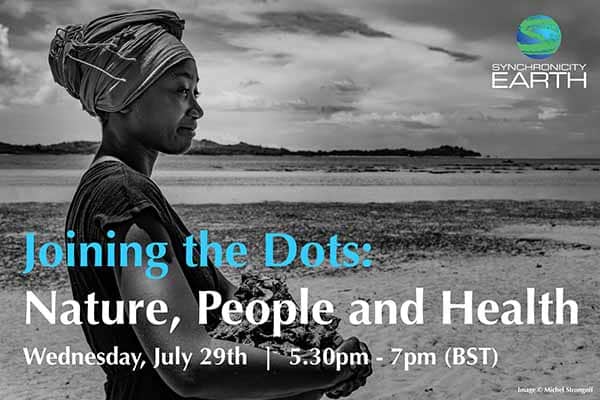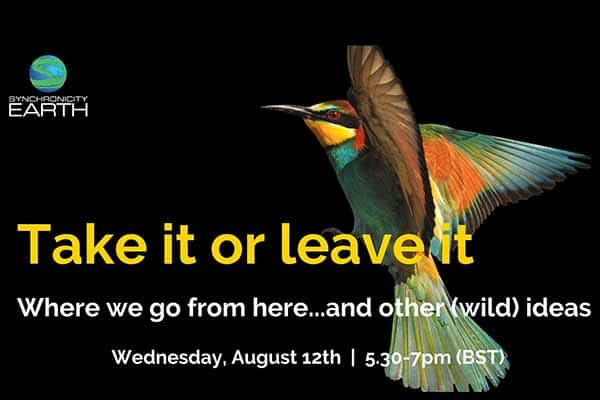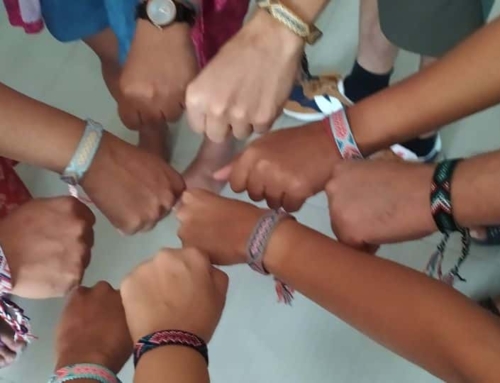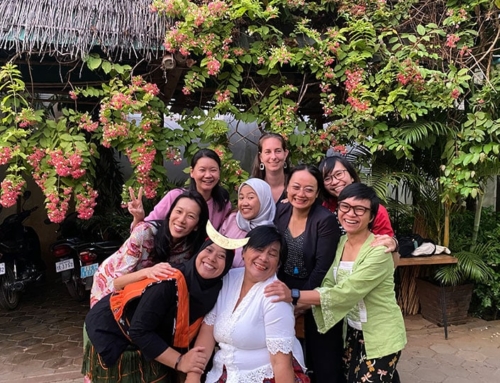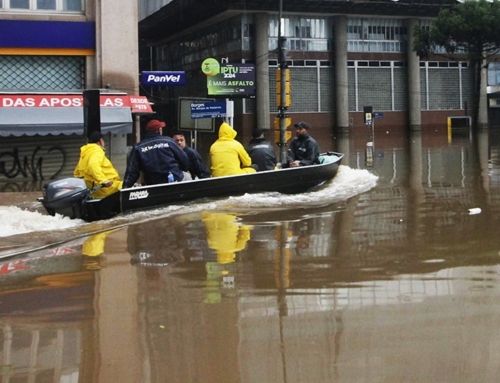For the third in our series of Deeper Thinking webinars, Beyond Carbon: nature’s big moment, we had the privilege of listening to Tom Rivett-Carnac, who has been a leading figure in developing mainstream action on climate change. Tom was Senior Advisor to Christiana Figueres when she acted as Executive Director to the UNFCCC (United Nations Framework Convention on Climate Change). Together, they co-authored the book The Future we Choose and founded Global Optimism, which – among other things – delivers an excellent weekly podcast.
In this discussion, we wanted to draw on Tom’s expertise in the climate world and ask what can be done to help create a groundswell of support to address biodiversity loss, a less talked about – but equally urgent – ecological crisis. In this piece, we pick out some of the key points that emerged from the webinar, which you can watch in full below.
The ecological crises we face – climate breakdown, the destruction and degradation of nature, the spread of zoonotic diseases – are all connected. To think and act otherwise is a mistake.
“2015 was the last moment where it made sense to think about the components of the Paris Agreement and of climate change and the destruction of nature and the nature emergency that we’re in, in isolation. In 2015, to get to the Paris Agreement it was necessary, to some degree, to break down what was happening and focus on certain elements of it so we could get to the long-term goal to reach net zero. But we were aware that we were oversimplifying what we were doing, in order to make it possible. Since then, the name of the game has been integration between the different elements and they’ve had to come back together again, and that’s been an incredibly positive journey.
I would say the issue is not how we replicate climate success in the field of biodiversity, but how we get people to understand that this was always the same thing.”
We must stop seeing these issues in silos
“If we continue to see these issues in silos, it will be almost impossible to get our arms around the entirety of the problem.
It is ridiculous that we have structured our not for profit system in these vertical ways – some people are concerned about climate, others are concerned about biodiversity. I think sometimes we have to put our hands up and admit that maybe this is what is partly creating the problem.
People who work in the not for profit space are to some degree funded and incentivised to say ‘my issue’s the most important’. Actually, from the perspective of either a business or a concerned citizen, the integrations and interconnections are much more important.”
There is an overemphasis on trying to control outcomes
“We’ve allowed ourselves to believe on climate – and I think this would go for biodiversity too – that our actions are only meaningful if we have a high degree of control over the outcome. We hear this all the time, you know, for example from family members who say things like, why would you stop flying, why would you change your lifestyle, what about China, what about India, what about the US? It’s a way of discrediting the attempt to take action or the attempt to expand the field of responsibility to do something collective.
But if you think about that relationship between control and outcome, in most areas of human endeavour, meaning is defined by having less control.
Think about something like taking care of your child who is sick. You wouldn’t say, ‘It’s only worth taking care of the child if we know for sure they are going to get better’! If anyone has a spiritual practice or a religious practice, the loss of control and the letting go can actually be the most meaningful part of that activity.
There have been moments of incredible darkness whether it’s ‘fight them on the beaches’ or ‘I have a dream’ where people decided they were just going to meet what they had in front of them and try to keep moving without being able to control the outcome. Personally, I feel that’s a much more satisfying, and a much less exhausting way to live your life.”
An obsession with ‘purity’ and perfection
“Something unfortunate happened around 12 years ago in the relationship between action on climate change and nature. The concept of carbon offsetting began to be seen as cheating: it was what you did if you weren’t really serious, it was a kind of ‘get out of jail free’ card.
Actually, I think the environmental community needs to grow up and get over this idea that there’s something a little unsavoury about carbon emissions, that you feel guilty about it and have to make up for it in some way. I think we’ve seen that hasn’t helped at all, it doesn’t bring anybody else on board.
We have just entered the most consequential decade in human history; this sounds like an exaggeration, but it’s really not. By 2030 we will know whether we’ve been able to turn this curve of emissions and facilitate the refunctioning of nature’s systems to such a degree that we’ve effectively reduced emissions by 50%. Or – conversely – we might be quite a long way down the path, having lost control of the climate and it will matter less and less what we do, because nature’s systems will be beginning to operate independently.
The environmental community sometimes appears to have an obsession with a kind of purity and having the best ideology around what they’re doing. But we don’t have time for that! Every ton reduction of carbon and every tree planted needs to be celebrated.
We need to build momentum in all the different areas we can and appreciate that these actions are all part of the same attempt to improve and transform the world for the better.”
Momentum is more important than perfection
“I’m a big believer that momentum is more important than perfection. You can want things to be a particular way and spend a very long time engineering them to be that way, but actually once you start moving and you start building momentum, you start building a constituency and you start building allies, then your ability to transform things also starts to build.
When people are asked to show up in a profound way and that includes being honest about their moral judgements and the kind of world that they want and they’re asked to manifest that in their lives, I actually find that people really respond well to that. Nobody wants to be on the wrong side of history.”
Nature’s native community
“While the narrative has been dominated by climate, when we talk about nature we have a huge advantage; it is something that people relate to. In communications terms, biodiversity actually does have native communities of interest – people who identify themselves as birdwatchers, as anglers, as ramblers, as campers, as outdoors people. When we were researching our book The Future we Choose, for about six months before the pandemic hit, Christiana and I travelled around the world and we spoke to different audiences about climate change. We spoke to some people who would be very sympathetic to the message and others who would not be sympathetic at all. What I can say from experience is that the unifying message for all of those individuals is actually about nature and their personal experience of it.
One of the things which hits people in the gut hardest (…) is when they start to think about what they’ve lost. That has an emotional impact on them.
With the best will in the world, telling everyone that we can have a future powered by renewable energy, it’s difficult to elicit an emotional response, but when you talk about a regenerated planet, a reforested planet, a world where that biodiversity has now come back, actually you can create a much ‘broader church’ of people who are interested in this issue.”
The golden thread
“Does biodiversity need to ‘have its moment’? Or actually does every moment need to be fundamentally based on biodiversity? I would think about it more that way. Biodiversity is central to the future of climate, it’s about the future of human rights, it’s about the future of clean air, it’s about the future of trade, certainly about the future of agriculture, so how do we find a way to make all of those fundamental elements speak to people wherever they are, in terms of the issues that affect their lives and what they are really connected to? We need to plug into people’s native interests, build off that and try to base our communications and policies on that – there needs to be a ‘golden thread’. The sum total of all of those elements needs to add up to more than the various different pieces.”
Who do we want to be to embrace this privilege of being here at this most consequential moment in human history, how do we want to face that as human beings, how do we want to show up?
“I know enough people who have ended up in senior positions in governments and they pull on the levers of control they’ve been given and realise they’re not connected to anything! The point is that we’re all trying to think about how we exert influence on the system together.
I think there are three levels at which we need to take action. The first is – how we show up. If you want to call it stubborn optimism that’s fine; Joanna Macy calls it active hope, a determination that you will bring all of yourself to this critical time at this critical moment, and be part of creating the future. That’s fundamental.
The second piece is actually about your own footprint and your own emissions, whether it be biodiversity, or climate change or other things. That’s significant, not just because it can have a big impact on its own, but also because it makes you feel better. A lot of the problem here is that we feel divorced from the issue and that can be quite painful. Part of the challenge is reprogramming ourselves to realise that we don’t have to have control of the outcome in order to take meaningful action, but another part is beginning to take action and feeling more like we’re participating. We have 10 years to cut our emissions in half. In your own life, in all our own lives, if we’re serious about it, that’s enough time.
The third thing is how you engage with power. All of us have different amounts of power in all sorts of different ways. We might have power professionally in terms of engaging with the company we work with, we might have capital where we can engage with how we manage it, many of us are voters, we all purchase things in different ways. So identifying those places where you have power, being realistic about the ones you don’t, and saying, in each of these areas, I can have a role, and I can pull that lever. For me, and for people I’ve talked to, those three levels are a good way to think about this and are all necessary: how you show up, your own footprint and your relationship with power.”

